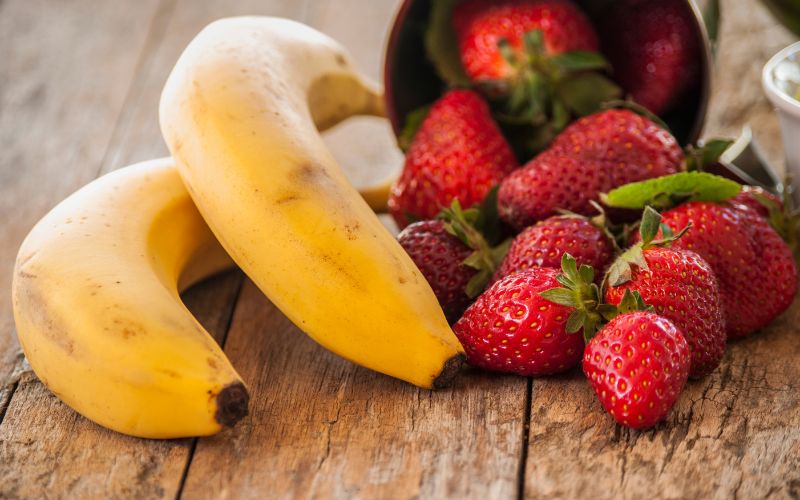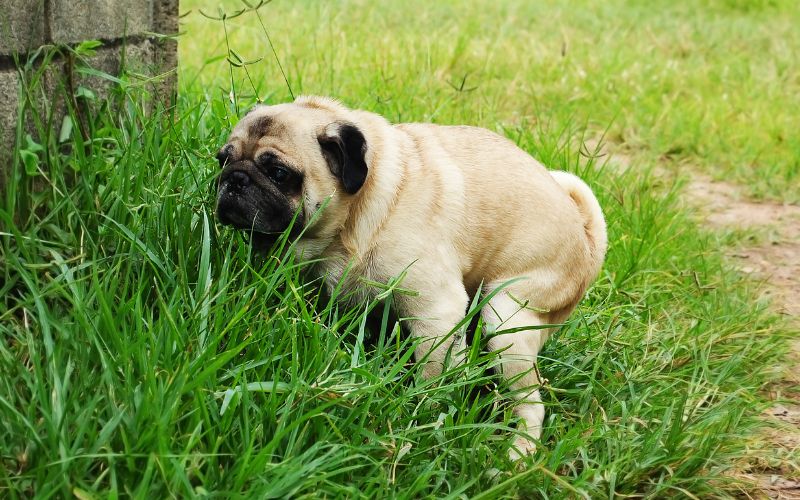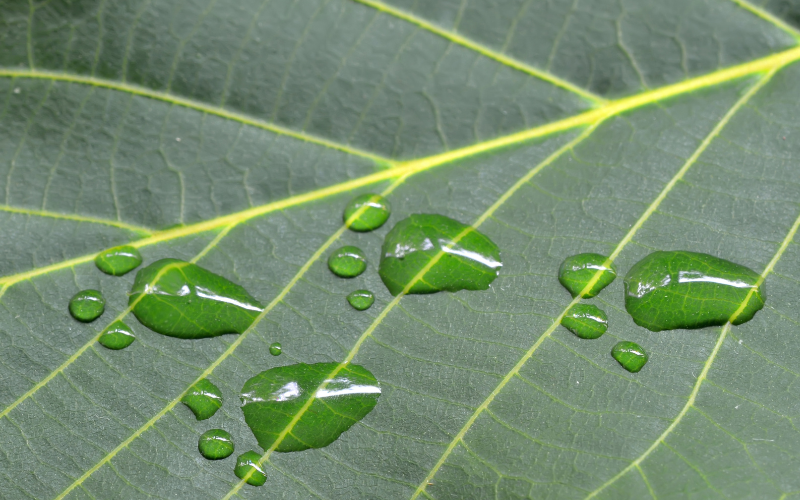A common submission to Q&As for dogs is: Can dogs eat fruit? And which ones are good versus which ones are bad for dogs?
Which is the very topic we’re tackling today, in our very first Q&A response.
If you have your own burning questions regarding feeding and caring for your dog, make sure to submit them in the comments section at the bottom of this post. We share the answers to these questions on our blog, so that other dog owners can benefit. After all, if you have specific questions the likelihood is that other pet parents will too!
Question from Liz Gravener and Bagel, her Beagle:
My question for you would be around fruit.
I know blueberries and strawberries are good for dogs, but my boy loves mandarin and banana too (I only give him very small portions)…. are these ok for dogs? Which other fruits are suitable/bad, and also recommended portions?

And here’s our answer…
The Benefits of Introducing Fruits into Your Dog’s Diet
How lucky you are, Liz, to have a dog that enjoys fruit!
Fruit is actually one of the best treats we can give our dog as part of a healthy diet, adding variety as well as health benefits. By incorporating a variety of safe fruits into your dog’s diet, their bodies will be exposed to a greater wealth of vitamins and minerals.
To give you a bit more insight into the fruits that are good for your dog, as well as those that aren’t so good for them, we have put together a little guide to dog-safe fruits.
What fruits are safe for dogs?
When it comes to identifying what fruits are safe for dogs, it’s important to know that dogs are tolerant of fructose (the main sugar in fruits) although they don’t naturally have a ‘sweet tooth’ - unlike a lot of humans!
If you’re interested in giving your dog a fruit treat, berries are fantastic antioxidant boosters, with blueberries coming in at number one as the king of antioxidants.
- Blueberries are a good source of fibre, are low in calories, as well as being a great source of vitamin c and k
Strawberries, raspberries and blackberries are also great choices to give your dog as a tasty treat now and then:
- Strawberries are high in vitamin c as well as having a high water content making them a great source of hydration
- Raspberries boast considerable dietary fibre to help promote healthy digestion
- Blackberries are a great all-rounder, containing lots of anthocyanin antioxidants, vitamins and fibre, as well as being low in sugar

Apples are often overlooked but lots of dogs actually do enjoy apples due to their crunchy texture. However, it is vital that you remove the seeds before feeding the fruit to your dog, as apple seeds contain small amounts of cyanide.
Other dog-safe fruits include:
- Bananas
- Oranges
- Nectarines
- Mangoes
- Peaches
- Cranberries
- Pears
- Pineapples
- Watermelon
Please note that many fruits, particularly bananas and strawberries, are very high in sugar and so should only be given in small portions and in moderation.
All fruits should have their seeds, skin and rinds removed before giving them to your dog.

Is fruit toxic for dogs?
While the aforementioned fruits are safe for canine consumption in moderation, there are a fair few fruits which are toxic for dogs.
As a rule of thumb, always remove the seeds from any fruit you intend to give your dog, as they often contain various poisons which could be very harmful if consumed.
What fruits are bad for dogs?
As to what your dog should NOT eat, grapes and anything from the grape family (fresh grapes, sultanas, raisins, grape juice, etc) are top of the list.
While toxic reactions are rare, it does happen and it isn’t pretty. To date, no-one seems to know why, or what compound causes the issue, so to be safe with that one, just say no.

Rhubarb is also very toxic to dogs and should not be given to them under any circumstances.
Wild berries are also risky; you wouldn’t eat an unknown berry, and so it should be no different when it comes to your canine companion.
Grapefruits, lemons and limes should also be avoided, as their high acidity levels tend to cause stomach upset in dogs.

Avocado fruits are commonly thought to be toxic to dogs, however they actually are not. The parts of the fruit that ARE toxic to your dog are the leaves, skin and pit - these should not be eaten by humans or by dogs, as they contain a toxic substance called ‘persin’.
Similarly to avocados, stone fruits such as plums and peaches are often thought to be poisonous to dogs when they aren’t. The stones are the poisonous bits, being both toxic as well as an obstruction risk should they be consumed by your dog.
Something to be mindful of as a dog owner is ‘windfall’ fruits, which are fruits that have been knocked from their trees and have landed on the ground. These fruits will still contain their seeds and skins, which if found and eaten by your dog could be harmful.
In Conclusion
So Liz, in conclusion, introducing dog-safe fruits into Bagel’s diet in moderation can up his vitamin and fibre intake, as well as adding fun textures and flavour variety to keep him stimulated.
Some fruits such as strawberries and watermelon have a high water content and can be a great way to help keep your pup hydrated on hot days.
However, it is important to be mindful of the fruits that are toxic or upsetting for your dog’s digestive system. Fruits such as grapes/raisins and rhubarb are considered toxic and can make your dog very ill.
In most cases, the thing that is toxic about fruits is their seeds and skins, which luckily enough are the parts we usually deem inedible anyway. Seeds in particular should be removed before treating your dog, due to the fact they often contain small amounts of poison.
When out and about on dog walks, watch out for windfall fruits that may be snatched up by your dog before you get a chance to remove the dangerous parts.
On the whole, fruits are a fun and tasty way to get some beneficial vitamins into your dog, and if properly prepared and given in moderation can be really good for them.
Happy snacking!




